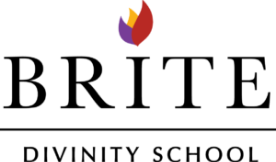Brite Divinity School, along with other institutions of theological higher education, conducts criminal background checks as an expression of our commitment to the safety and security of our learners and the congregations, agencies, and other institutions our students serve. We are also committed to this requirement because excellence in ministry calls us to fulfill the best practices of our profession.
As part of the application the prospective student completes a criminal background check form and the Office of Admissions then initiates a criminal background check. Should that background check reveal any information that might compromise the applicant’s participation in the life of the Divinity School, an administrator will contact the applicant and offer the opportunity to respond to the report. If the reported information is accurate and/or of a significant nature, the provisional offer of admission and financial aid may be revoked.
The charge to the applicant included in the application fee is $75.00 covers the fee for the background check. Applicants may review the information received in the background check, but the document will remain in possession of the Divinity School.
Students who apply to multiple degree programs at Brite, must complete the background check for each admission, unless the admission is a transfer from one degree program to another. The request for the background check is handled by the Admissions Office.
The actual reports from the external company hired to process background checks for Brite Divinity School are returned to the Dean, and remain confidential to the Dean. Records of the reports are kept in the Dean’s office for seven (7) years. At that time, all background records are disposed of, or erased.
Action Taken Upon Report of Criminal Activity for Students and Applicants at Brite Divinity School
Findings of criminal activity reported by a criminal background check will be reviewed by the Dean. If a concern arises, the Dean will consult with the Director of Admissions and/or the Director of Student Success. If the concern rises to the level of a “criminal record,” or if there is concern about the well-being of the prospective student (e.g., numerous driving under the influence records), or of others on campus (e.g., criminal assault or sexual misconduct), the Dean will contact the prospective student directly. If the student is entering a professional degree program in which Supervised Ministry is a requirement, the Dean shall notify the student and alert them to the fact that the Director of Field Education and Supervised Ministry must also be advised about the situation.
Initially, the Dean, or someone designated by the Dean, will contact the student or applicant regarding the information contained in the report by phone (or email if phone contact is not possible). If phone contact is made, a contact report of the conversation will be prepared.
Should the report be of a concerning nature in the eyes of the Dean, the student or applicant will have the opportunity to view and respond to the report and provide further information to the Dean and/or others named above. Such responses are due within 10 business days following the date the student or applicant is sent a copy of the adverse report.
The Screening Committee will conduct a review of any situation involving criminal behavior discovered by a background check on a case-by-case basis. The review will occur as soon as reasonably possible following disclosure or discovery of the information and the expiration of the time period for the student or applicant’s opportunity to respond to the report and provide additional information. Continuing students who have an adverse report, will have the opportunity to meet with the Screening Committee during the review to discuss continued enrollment.
The Screening Committee shall consider the criminal activity in the context of the applicant’s/student’s fitness for ministry and any other appropriate factors when making their determination of the student’s acceptance or continued enrollment.
Additionally, criminal activity reported by the criminal background checks will be compared to the application of the student or applicant to determine whether the applicant or student disclosed the activity in their application. If the student or applicant did not disclose the behavior in their application, they will be offered the opportunity to explain the omission. Ordinarily, failure to inform the Divinity School about past criminal activity on the application will be considered unethical behavior and may result in denial of the application or termination of enrollment.
The Screening Committee’s review will conclude with a formal, written decision that includes information on the criminal behavior, the process undertaken by the Committee, and the basis for their decision. An applicant or student will be informed of the Screening Committee’s decision by letter.
A student may appeal the decision of the Screening Committee to the President. The decision of the President is FINAL with regard to admission or continued enrollment of a student.

